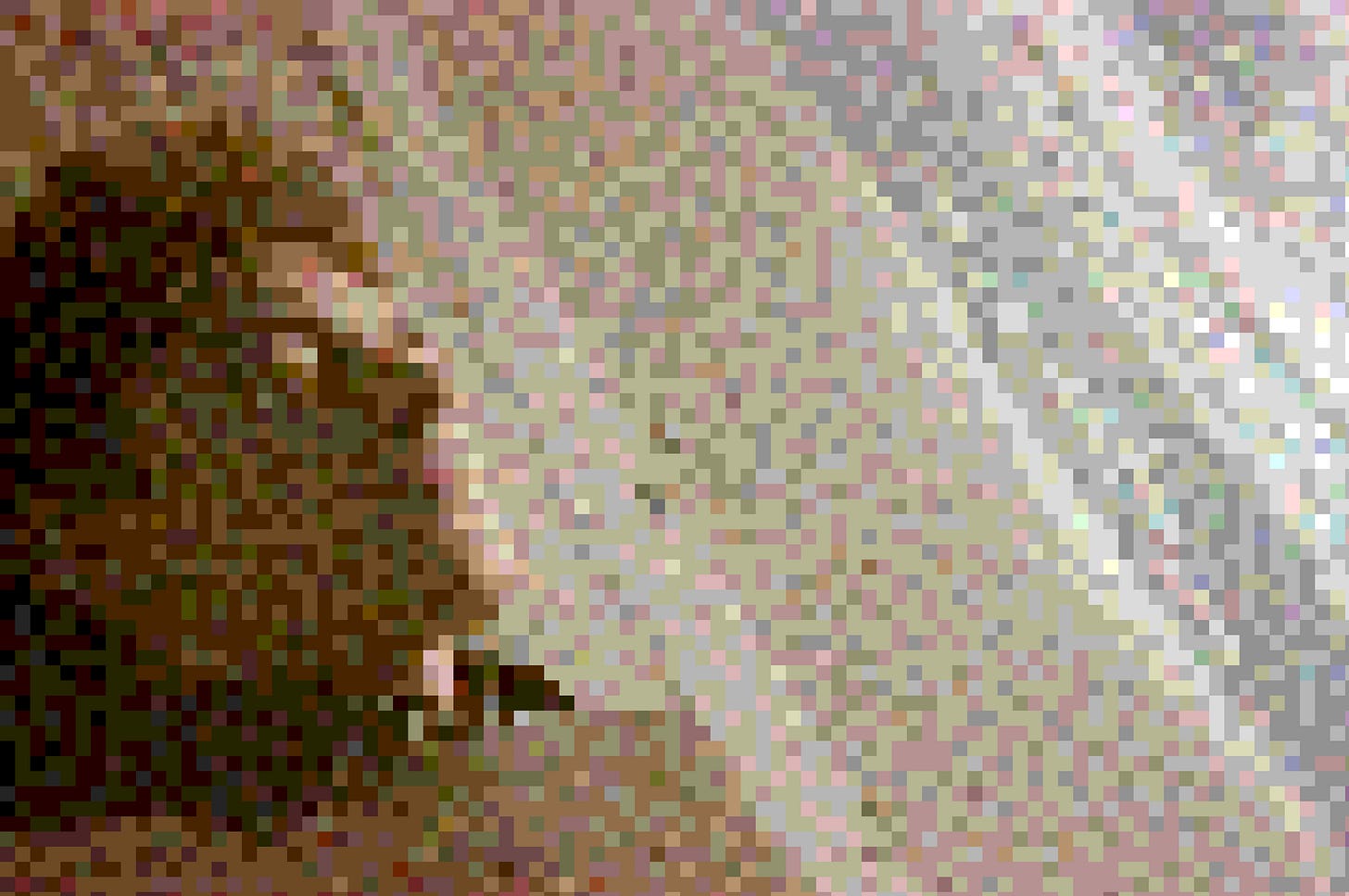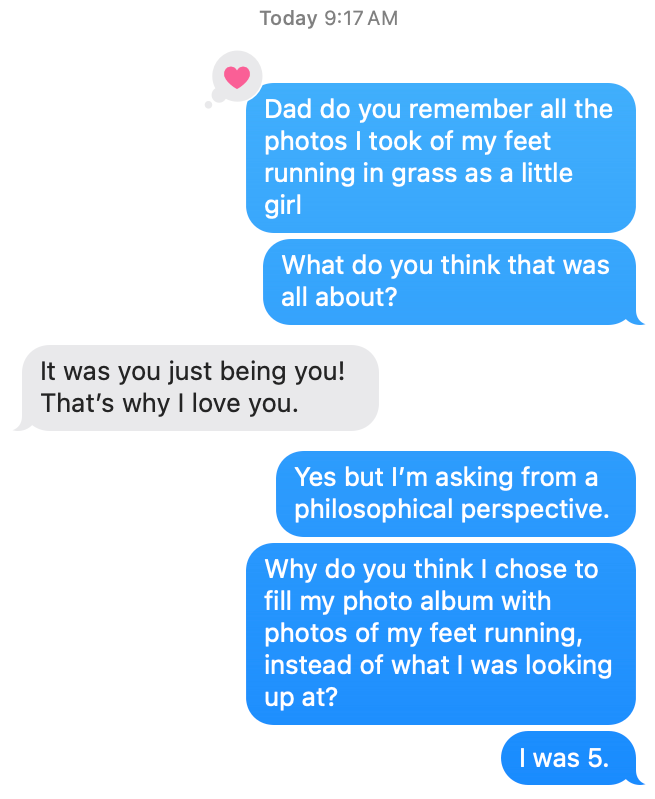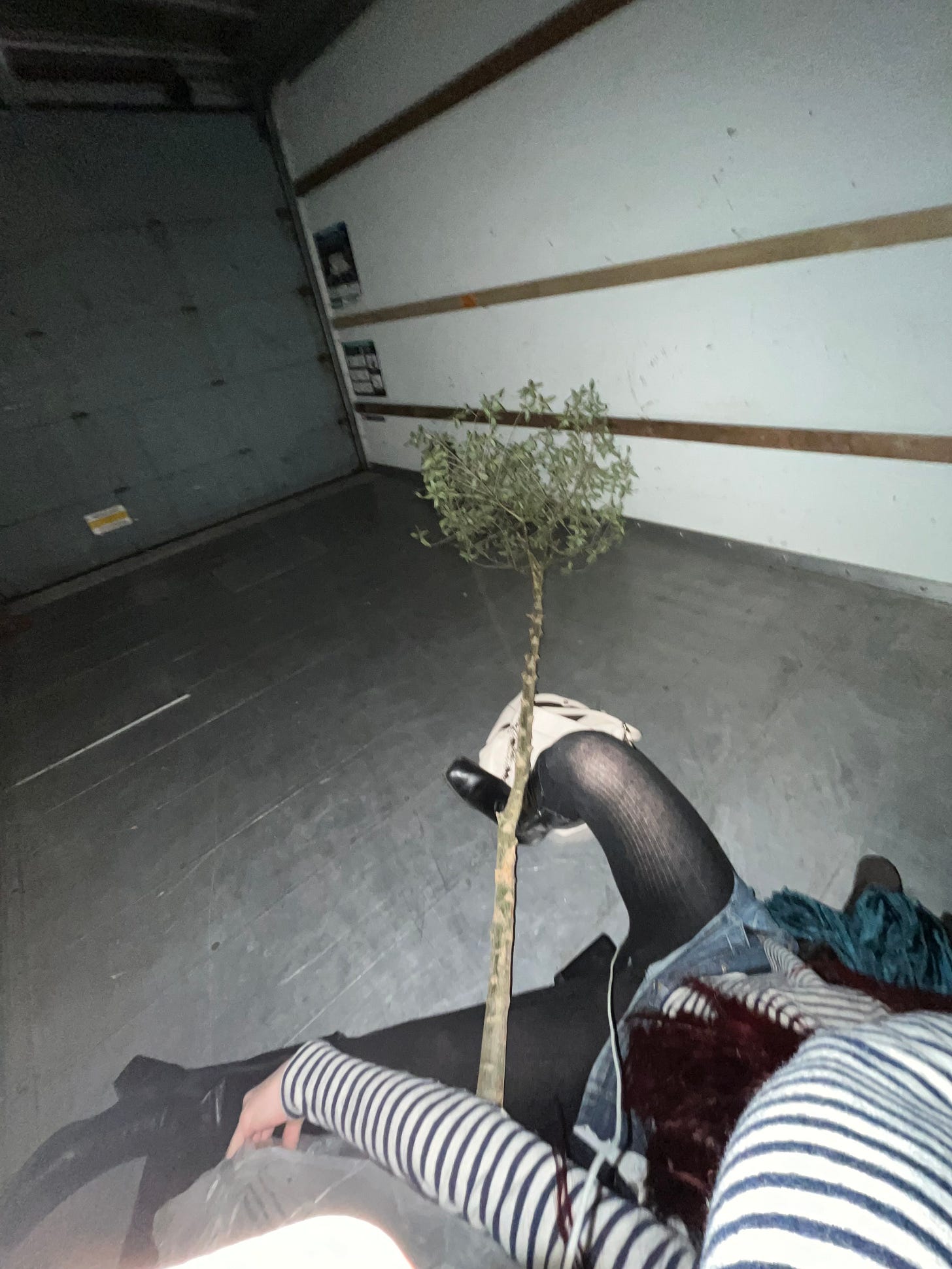Spotfull Mind
It’s not just the memory that is painful to lose - it’s the losing of the you that lived it.
“Though nothing can bring back the hour / Of splendour in the grass, of glory in the flower: / We will grieve not, rather find / Strength in what remains behind.” - William Wordsworth 1804
Our lives have become framed by anticipated memory—we live moments with one eye toward how they’ll look on a feed, how they’ll age in the archive. Our reality feels less lived now, more arranged. A life poorly translated into pixels and panes, organized by algorithms that whisper, “Remember this?” as if they know what matters. As if memory could be summoned by notification. So much of life now feels like a scene staged for an invisible audience. I wonder if we’d know ourselves better—really—if we stopped recording ourselves through this surveillance system. If we peeled off the gloss, the practiced smile, the flash-lit embraces with strangers who never learned our names.
I recently found some old rolls of film and disposables buried in a desk drawer. Some were five, maybe seven years old. Slightly out of focus and so honest, they looked nothing like the images I’m used to seeing everywhere. They weren’t waiting to be witnessed. Just moments that happened—without angles, without captions, without calculation of how they might be remembered.
So we don’t remember. We select. We rewrite moments until they feel bearable, beautiful. Maybe we live in the edit, in the cartoonishly smiled lies that keep us unbroken—or “spotless.” Maybe those smiles do bring us a flicker of truth. Do you think when doctors say that if you force yourself to smile once a day you will actually become happier?
Philosophers like John Locke and Paul Ricoeur long suggested that identity is the accumulation of memory— Ricoeur says "We tell stories because in the end, we are our stories."So when we curate our lives into fragments that please, when we discard the uncomfortable moments, we’re not just editing our story—we’re editing the self. And eventually, the mask starts to mold to the face.
We live in this endless sunshine. But I prefer a little shade. I like my mind a little spotfull—stained and uneven. Because the memories that shape us aren’t always golden. Some come wrapped in fluorescent light and silence. Some wear tangled hair and clothes you hated. Some arrive unremarkable, dull—until years later, when you realize you left part of yourself there, or maybe it was taken. Maybe that’s why we forget them. Not because they were small, but because they hold a mirror, to our bare face and we aren’t ready to look.
Eternal Sunshine of the Spotless Mind—a favorite movie of mine—translates this idea into something devastatingly literal. Joel and Clementine, in trying to erase the pain of their failed relationship, agree to have one another wiped from memory.
I see the appeal of memory deletion. The clinic, Lacuna Inc., promises freedom from pain: “a form of healing, a mending of the damaged mind,” as if “there must be happiness in being able to erase the spots—the traumas, the pains, the regrets—from one’s mind.”
This echoes the Nietzsche quote the film lingers on:
“Blessed are the forgetful, for they get the better even of their blunders.”
But I see something so haunting: it’s not just the memory that is painful to lose—it’s the losing of the you that lived it. To lose a memory is to lose a part of oneself. The lessons that shaped who you are—all gone. In the scene I put below, (scroll down for video) the books lose their spines, you can see they’re blurred out because his memories are literally crumbling. I love it his line “I remember that speech well.” …By the end of the scene, the final frame of the clip, she’s gone. And what’s left isn’t peace, or promised healing, It’s numbness. Its loss.
This idea—that identity can split, or be sanitized—is the theme of my current favorite tv show Severance. In the season finale, there is a sequence where Mark confronts his “innie” self—his severed consciousness, that has his own life and personality…—in a heated back-and-forth, begging him to sacrifice his own existence for the sake of the “real” Mark’s freedom. The morality is conflicting… Does one version of the self deserve priority? Can two realities exist? If you had to pick one to save, which life is of more importance if both are a part of you? Or might there be a way to hold space for both—to resist sacrificing one part of ourselves for the other? I like how the show gains so much humanity for the “Innies” and compels that question. Anyway…
I think a lot about digital life. The pull of social media, the numbing dissociation it offers—how easy it is to slink into the glowing pixels. Unlocking our phone like its heavens gate. Our personal suffering, our private shame, whatever you have, already weighs too much, and then on top of that, the collective world and human suffering is piled on. Of course we disappear. Of course the hologram, this sort of split consciousness, makes it easier to hold.
And yet — I still desire to hold myself. Whether you’re proud of who you are or can’t bear your own reflection, it takes courage to stay present with all that makes you, you. This isn’t to romanticize wallowing — but I’ve come to realize it’s rarely the person I miss. It’s the feeling that framed them. The season. The version of me they stood beside. Was it summer? Was I thriving in my work? It’s not always the name you miss, but the light that touched it, the reality that vanished with them. Memory doesn’t always ask permission. It returns when it wants to. Still, its not your name. Nor are we the mirage of the future that tells us life was worth living because look how spotless it is…
So it comes back to my disposables… Most of the photos were of people I love(d). A few below for you…


Instagram really used to be more spontaneous. A photo of something random—”the first thing you see”, as my dad put it. I think I might start enjoying social media again if I can just throw X-Pro/ heavy vignette over a random photo and post it with no caption, like I’m talking to no one. Maybe I’ll start turning comments off. Maybe I’ll just start posting photos of my feet running in the grass. Until I have to promote a show, of course. Then you’ll see me use it for work which I don’t mind, and lately, feels like the only reason I’ve kept it.
Substack isn’t immune to the social media effect. Sometimes the “Notes” feels like Tumblr Twitter hybrid… Writing, is a place where the imagination edits freely. We can revise the past just by retelling it. When you journal, are you writing for your future biography? Are you creating or confessing? Maybe that’s the tightrope we balance on now — one side expression, exposure. Authenticity, optimization. Even in undiscovered nooks of the internet, But ultimately, I love it here because I’m aware of your gaze, but I’m not on display. I’m in dialogue. I’m not just an object, my thoughts are the subject. It’s quiet here. My brain can breathe. I can express myself without limited characters in the caption of a selfie. Writing, in its nature, fights my urge to vanish my digital footprint, while still giving me the space to meet myself/reflect in the moment, work it out word by word. If the future comes asking for a story, I want to remember what was real, what I learned, not just what was palatable.
All that said, I’m going to post more of my poetry here now, who knows if it’s coherent, but I’ll let it exist before the memory becomes edited.
I made you a quick mixtape. Some songs on forgetting, remembering… In no particular order.
Only Once - John Buck Wilkinson
Forget About - Sibylle Baker
The Leanover - Life Without Buildings
Adam Lives In Theory - Ms. Lauryn Hill
Looking Back - Laura Marling
How To Disappear Completely - Radiohead
Everybody’s Got To Learn Sometime - Beck
Spotless Sunshine Of The Eternal Mind - To Whom It May Concern
Two Slow Dancers - Mitski
About You - The 1975
Regret - Fiona Apple
Hard Drive - Cassandra Jenkins
“How can anybody be a person of quality if they wash away their ghosts with common sense?” - Leonora Carrington
In other news… I acquired a 13-foot olive tree for my apartment. I picked it up with my best friend, with no plan of transport other than an appropriately sized U-Haul. I sat unbuckled, folded into shapes my body might only make to protect such a totem from potholes, for about an hour and a half in the pitch dark as we crossed the Brooklyn Bridge. I did a lot of thinking back there — one of those moments I experience frequently, where I became too aware of the fragility of living things, such as this tree and myself…
I named her Philomena — from the Greek phílos, meaning “friend” or “beloved.” Or in mythology, she was a woman silenced, who refused to be erased. She wove her reality into tapestry when her voice was taken, and the gods turned her into a nightingale so she could sing it forever. And so we were — two best friends carrying something delicate and alive across a bridge in the dark. No plan, just instinct. Just sisterhood.
This tree is not just decoration. She is my witness. Like me, remembering I’m not here to be seen. I’m here to live.
Love,










Beautiful Sophia
I don’t even have words for the emotions that you stir. Thank you for such beautiful writing and for such a deep look into who you are keep it coming. I can’t get enough.